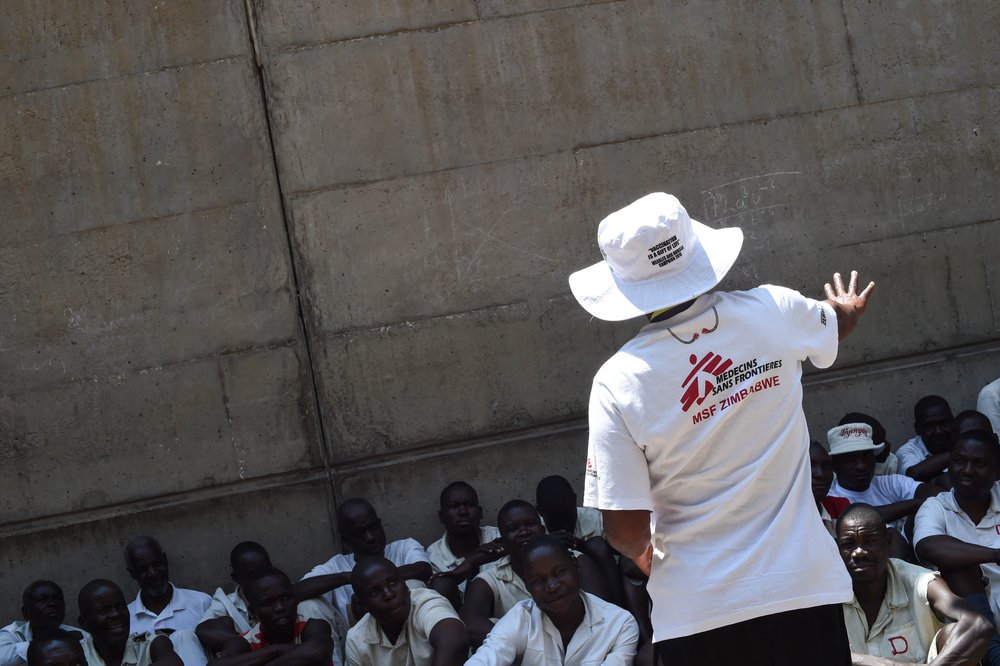We are supporting case management of COVID-19 cases who are in isolation in Harare and upgrading facility capacity to 164 beds, while WASH team provides additional support in communities.
Can you make a donation to support our COVID-19 response?
Zimbabwe's economy has been in decline since the 1990s, with very few funds available for any public expenditure and social services. Poverty and unemployment are endemic and political strife is commonplace.
The country’s health sector faces numerous challenges, including shortages of medical commodities and essential medicines. MSF runs water, sanitation and hygiene projects, provides cervical cancer screening and treatment, offers care for victims of sexual violence, and responds to emergencies.
Healthcare in Zimbabwe
MSF currently runs projects in partnership with the Ministry of Health and Child Care to provide wide-ranging care for HIV/AIDS, tuberculosis (TB), and mental health issues, as well as for non-communicable diseases (NCDs).
Although the HIV prevalence rate has decreased by almost half, there are still major gaps in vital treatments and services available to patients, such as the availability of routine viral load monitoring and second-line antiretroviral (ARV) treatment.

MSF Training of the peer-to-peer counselling strategy for patients in prison for HIV/AIDS care. © Ikram N'gadi / MSF
MSF has supported the scale-up of viral load testing in 40 health facilities and the management of patients whose antiretroviral therapy had failed. Staff also assisted with the treatment of non-communicable diseases such as asthma, hypertension and diabetes, and piloted the integration of treatment for HIV-positive patients living with NCDs.
After 11 years of offering treatment, care and support to more than a quarter of a million HIV patients, and thousands of TB patients, MSF handed over the Epworth HIV/TB project to the health ministry at the end of 2017.
MSF continues to run HIV outreach programs using patient-friendly, empowering models of care for hard-to-reach communities whose nearest health facilities can be up to 180 kilometres away.
MSF teams run water, sanitation and hygiene projects, improving the provision of clean water to vulnerable communities by rehabilitating and upgrading boreholes and drilling new ones, and carrying out mass vaccination campaigns against cholera and other infectious diseases.
